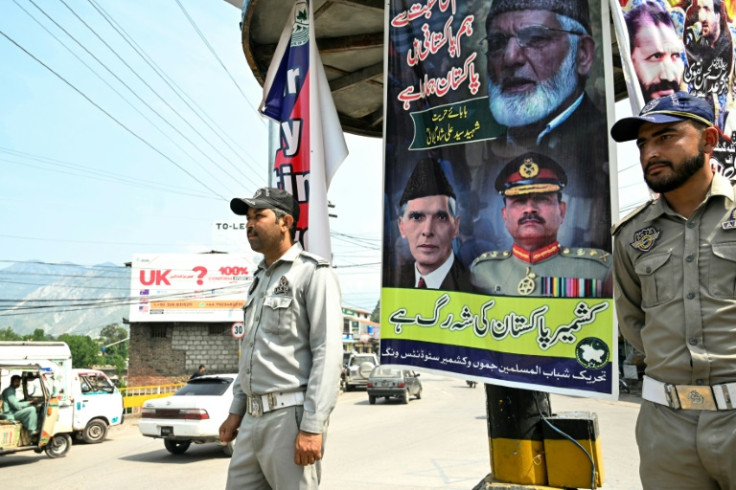Pakistan Conducts Second Missile Test Since Renewed India Standoff

The Pakistan military said on Monday it had conducted a second missile test since a fresh stand-off with India over the disputed region of Kashmir.
New Delhi has blamed Islamabad for backing a deadly attack on tourists on the Indian side of the divided territory last month, sparking a series of heated threats and diplomatic tit-for-tat measures.
The missile test comes as Iranian Foreign Minister Abbas Araghchi was in Islamabad on Monday for talks with Prime Minister Shehbaz Sharif, before heading to New Delhi later this week.
Araghchi will be the first senior foreign diplomat to visit both countries, after Iran offered to mediate between the two nuclear-armed neighbours.
"We do not want tensions to develop in this region and we will spare no effort to help de-escalate the situation between the two countries," Iranian foreign ministry spokesperson Esmaeil Baqaei said.
The Pakistan military tested a surface-to-surface missile with a range of 120 kilometres (75 miles), according to Monday's statement.
"The launch was aimed at ensuring the operational readiness of troops and validating key technical parameters, including the missile's advanced navigation system and enhanced accuracy," the military said.
On Saturday, the military said it had tested a surface-to-surface missile with a range of 450 kilometres.
It did not say where either of the tests took place.
Sharif said he was satisfied with the military's "full preparedness for national defence".
"The successful training launch clearly shows that Pakistan's defence is in strong hands," he said in a statement.
Muslim-majority Kashmir, a region of around 15 million people, is divided between Pakistan and India but claimed in full by both.
No group has claimed responsibility for the April 22 attack in Pahalgam that killed 26 people, but rebels in the Muslim-majority region have waged an insurgency since 1989.
Pakistan has denied any involvement and called for an independent probe.
Indian Prime Minister Narendra Modi said last week he has given his military "full operational freedom" to respond and Islamabad has warned it will respond with force to any aggression.
International pressure has been piled on both New Delhi and Islamabad -- who have fought several wars over the disputed Kashmir region -- to de-escalate.
US Vice President JD Vance has called on India to respond to the attack in a way "that doesn't lead to a broader regional conflict".
In an interview with Fox News, he also urged Pakistan to "make sure that the terrorists sometimes operating in their territory are hunted down and dealt with".
Russia called for de-escalation between the two countries, with Kremlin spokesman Dmitry Peskov telling reporters on Monday that Moscow was "following with great concern the atmosphere that has developed on the border".
"Pakistan is presenting its case to friendly countries," Information Minister Attaullah Tarar told reporters on a visit to Pakistan-administered Kashmir on Monday.
The two sides have exchanged nightly gunfire for more than a week along the militarised Line of Control, the de facto border, according to Indian defence sources.
In Indian-run Kashmir, a vast manhunt seeking the gunmen continues across the territory, while those living along the frontier are moving further away -- or cleaning out bunkers fearing conflict.
On the Pakistani side, emergency drills have been carried out on playing fields, residents have been told to stock up on food and medicine, and religious schools have been closed.
Sharif has postponed an official visit to Malaysia scheduled for Friday, Malaysian Prime Minister Anwar Ibrahim said on Monday.
© Copyright AFP 2026. All rights reserved.





















